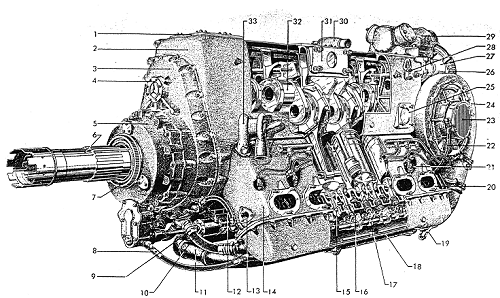‖n. (Zool.) A univalve mollusk of the genus
a.
God gave them over to a reprobate mind. Rom. i. 28. [ 1913 Webster ]
adv. Unrestrainedly. [ 1913 Webster ]
n. (Law) One to whom anything is legally abandoned. [ 1913 Webster ]
n. One who abandons. Beau. & Fl. [ 1913 Webster ]
n. See Abnet. [ 1913 Webster ]
n.
n. (Zool.) The European siskin (Carduelis spinus), a small green and yellow finch, related to the goldfinch. [ 1913 Webster ]
‖n. [ G. ] See Legislature, Austria, Prussia. [ Webster 1913 Suppl. ]
n. [ L. abies, abietis, a fir tree. ] A volatile oil distilled from the resin or balsam of the nut pine (Pinus sabiniana) of California. [ 1913 Webster ]
n. [ Gr.
I shall call the . . . doctrine that living matter may be produced by not living matter, the hypothesis of abiogenesis. Huxley, 1870. [ 1913 Webster ]
a. (Biol.) Of or pertaining to abiogenesis.
n. A very abject or low condition; abjectness. [ R. ] Boyle. [ 1913 Webster ]
n. The state of being abject; abasement; meanness; servility. Grew. [ 1913 Webster ]
n. Ability of body or mind; force; vigor. [ Obs. or R. ] [ 1913 Webster ]
v. t.
n. [ L. abnegatio: cf. F. abnégation. ] a denial; a renunciation. [ 1913 Webster ]
With abnegation of God, of his honor, and of religion, they may retain the friendship of the court. Knox. [ 1913 Webster ]
a. [ L. abnegativus. ] Denying; renouncing; negative. [ R. ] Clarke. [ 1913 Webster ]
n. [ L. ] One who abnegates, denies, or rejects anything. [ R. ] [ 1913 Webster ]
‖n. [ Heb. ] The girdle of a Jewish priest or officer. [ 1913 Webster ]
n. The quality or state of being abominable; odiousness. Bentley. [ 1913 Webster ]
n. pl. [ L. Aborigines; ab + origo, especially the first inhabitants of Latium, those who originally (ab origine) inhabited Latium or Italy. See Origin. ]
n. The quality of being abortive. [ 1913 Webster ]
n.
a. [ LL. absentaneus. See absent ] Pertaining to absence. [ Obs. ] [ 1913 Webster ]
n. The quality of being absent-minded. H. Miller. [ 1913 Webster ]
n. The quality of being absolute; independence of everything extraneous; unlimitedness; absolute power; independent reality; positiveness. [ 1913 Webster ]
n. The quality of being absorptive; absorptive power. [ 1913 Webster ]
n. One who abstains; esp., one who abstains from the use of intoxicating liquors. [ 1913 Webster ]
n. The quality of being abstemious, temperate, or sparing in the use of food and strong drinks. It expresses a greater degree of abstinence than temperance. [ 1913 Webster ]
n. The quality of being abstersive. Fuller. [ 1913 Webster ]
n. [ F. abstinence, L. abstinentia, fr. abstinere. See Abstain. ]
The abstinence from a present pleasure that offers itself is a pain, nay, oftentimes, a very great one. Locke. [ 1913 Webster ]
Penance, fasts, and abstinence,
To punish bodies for the soul's offense. Dryden. [ 1913 Webster ]
n. Abstinence. [ R. ] [ 1913 Webster ]
a. [ F. abstinent, L. abstinens, p. pr. of abstinere. See Abstain. ] Refraining from indulgence, especially from the indulgence of appetite; abstemious; continent; temperate. Beau. & Fl. [ 1913 Webster ]
n.
adv. With abstinence. [ 1913 Webster ]
n. The state of being abstracted; abstract character. [ 1913 Webster ]
n. The quality of being abstractive; abstractive property. [ 1913 Webster ]
n. The quality of being abstract. “The abstractness of the ideas.” Locke. [ 1913 Webster ]
n. The quality of being abstruse; difficulty of apprehension. Boyle. [ 1913 Webster ]
n. Absurdity. [ R. ] [ 1913 Webster ]
n. The quality of being abusive; rudeness of language, or violence to the person. [ 1913 Webster ]
Pick out mirth, like stones out of thy ground,
Profaneness, filthiness, abusiveness. Herbert. [ 1913 Webster ]
a. [ L. acanthinus, Gr. &unr_;, thorny, fr. &unr_;. See Acanthus. ] Of, pertaining to, or resembling, the plant acanthus. [ 1913 Webster ]
a. (Med.) Of or caused by
n. (Med.) A member of the order
a. [ Pref. a- not + cauline. ] (Bot.) Same as Acaulescent. [ 1913 Webster ]


